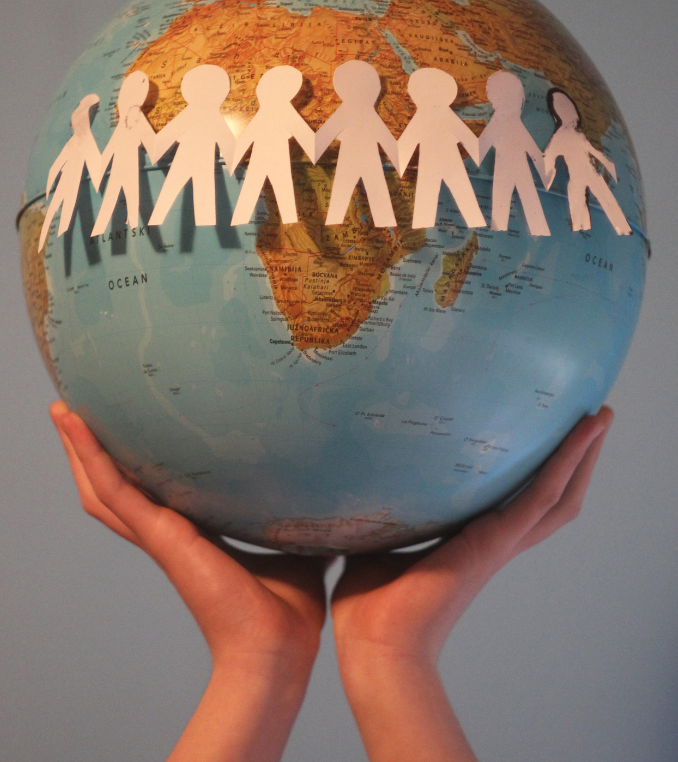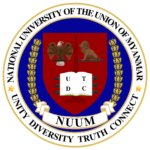Center for holistic international human rights law praxis
The center will be offering certificate programs in International Human Rights Law, International Humanitarian Law, International Criminal Law, International Environmental Law, and Holistic Human Rights Praxis and Leadership. In fall 2022, the center offers courses in Fundamentals of International Human Rights Law Research, Writing, and Analysis (2 credits), International Human Rights Law (3 credits), International Criminal Law (3 credits), and Human Right to Health (3 credits).

Goals
The Center for Holistic International Human Rights Law Praxis shall educate, train, nurture, and develop leaders, professionals, and specialists in the following
● Holistic Human Rights-Based Approach
● United Nations Human Rights Reporting and Advocacy
● Human Right to Privacy, Safety, and Security in Digital Age
● Human Rights Violations Investigation, Documentation, Evidence–Gathering, Analysis,
Writing, and Reporting
● Contemporary Issues and Challenges relating to International Environmental,
Humanitarian, Criminal, and Human Rights Law
● Country–Specific Issues in International Environmental, Criminal, Humanitarian, and
Human Rights Law
Certificate Programs
● Certificate in International Human Rights Law
● Certificate in International Humanitarian Law
● Certificate in International Criminal Law
● Certificate in International Environmental Law
● Certificate in Holistic Human Rights Praxis and Leadership
Common Courses
The following and any other courses may be credited towards the Certificate Programs:
● Fundamentals of International Human Rights Law Research, Writing, and Analysis – 1-2
credits
● International Human Rights Law – 3 credits
● International Humanitarian Law – 3 credits
● International Criminal Law – 3 credits
● International Environmental Law – 3 credits
● Holistic Human Rights – 3 credits
● Holistic Human Rights Praxis and Leadership – 3 credits
I. CERTIFICATE IN INTERNATIONAL HUMAN RIGHTS LAW
This program offers the following courses:
II. CERTIFICATE IN INTERNATIONAL HUMANITARIAN LAW
This program offers the following courses:
International Humanitarian Law – 3 credits
◦ Contemporary and country-specific challenges and issues
nternational Humanitarian Aid: Contemporary Issues and Challenges – 3 credits
◦ International Committee of the Red Cross
Investigating and Prosecuting War Crimes: Issues and Challenges – 3 credits
◦ Legal precedents
◦ International Criminal Court: Office of the Prosecutor
Rome Statute of the International Criminal Court – 3 credits
◦ Core crimes under international law
◦ International Criminal Court
◦ ICC Office of the Prosecutor
Independent Investigative Mechanism for Myanmar – 3 credits
◦ Issues and challenges
III. CERTIFICATE IN INTERNATIONAL CRIMINAL LAW
This program offers the following courses:
◦ History and evolution of international criminal law
◦ United Nations Security Council
◦ Definitions and elements of crime
◦ “Core crimes” under international law
◦ International Criminal Court
◦ ICC Office of the Prosecutor
◦ International Criminal Court: The Office of the Prosecuto
(Description unavailable)
◦ International Criminal Tribunal for the former Yugoslavia
◦ International Criminal Tribunal for Rwanda
◦ United Nations International Residual Mechanism for Criminal Tribunals
◦ History
◦ Mandate
◦ Issues and challenges
IV. CERTIFICATE IN INTERNATIONAL ENVIRONMENTAL LAW
This program offers the following courses:
V. CERTIFICATE IN HOLISTIC HUMAN RIGHTS PRAXIS AND LEADERSHIP
This program offers the following courses:
◦ Definition
◦ Concepts, principles, and synthesis of international human rights law, international humanitarian law, international criminal law, and international environmental law with metaquantum physics, quantum physics, social sciences and various disciplines
◦ Holistic Human Rights Praxis
◦ Holistic Human Rights-Based Approach
◦ Paulo Freire’s banking concept of education, critical pedagogy, and dialogical
approaches
◦ N.F.S. Grundtvig’s folk school
◦ Jose Diokno’s Revolution through Law
◦ India’s Public Interest Litigation or Social Action Litigation
◦ Mahatma Gandhi’s ahimsa, civil disobedience, and active nonviolence
◦ Metalegal Tactics and Remedies
◦ Human Rights and Paralegal Education
◦ Investigative Human Rights Journalism
◦ Promoting a Human Rights-Oriented Philanthropy
◦ Holistic Human Rights Leadership and Praxis: A Way of Being and Becoming
◦ Challenges of overcoming the “mirroring–the–enemy phenomenon” (Paulo Freire)
◦ Master Choa Kok Sui’s Principles of Character–Building: Cultivating Five Virtues
towards Holistic Human Rights Leadership and Praxis: Significance and Correlation
to Human Rights Tenets, Ethics, and Principles
◦ Master Choa Kok Sui’s Meditation on Twin Hearts, Pranic Healing, and Arhatic
Yoga: Central Role in Balanced and Mature Human Rights Leaders
◦ Human Rights Visioning and Thought Form-Building
◦ Multi-sectoral and multidisciplinary perspectives on various human rights
issues and challenges facing Myanmar
◦ Interconnections between human rights, spirituality, quantum physics, and
metaquantum physics
◦ Critiques the various issues and challenges confronting Myanmar, the Burmese diaspora, state actors and non-state actors
◦ Questions involving gender, equality and non-discrimination, ethnic, language, armed conflict, health, education, humanitarian aid, etc. issues
◦ UN Human Rights Council Working Group on the Right to Developmental
◦ Revised Draft Convention on the Right to Development, with commentaries
◦ Significance and Strengths of the Draft Convention
◦ Issues and Challenges of the Draft Convention
◦ A student or group of students may propose and work on a research project as may be approved by the faculty
◦ Qualified students may be approved by faculty to avail of experiential learning
opportunities
◦ Qualified students may be approved by faculty to work on a specific project under faculty supervision and/or human rights professionals
◦ Regular student reports need to be submitted on a weekly basis or as may needed and/or required by the faculty
